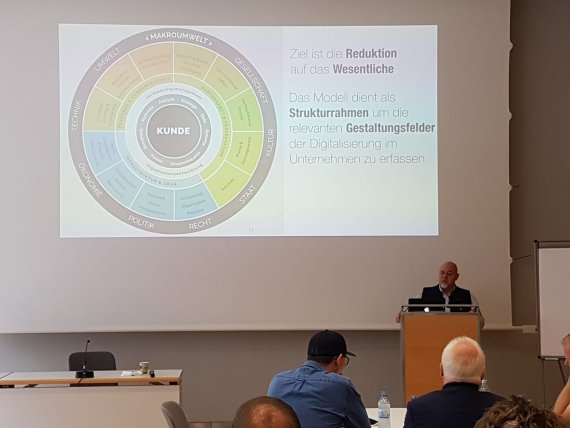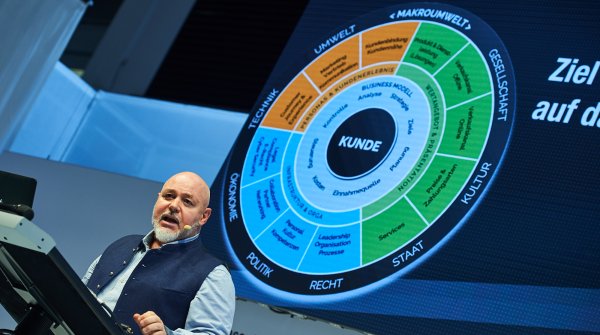
The first summary of the results of the ISPO Digital Readiness Check sounds brutal:
“The sports industry is not in a rosy state. It’s especially stark with retail: either it’s pain-free or it doesn’t care about the customer. If this continues, two thirds of retailers will be gone in a few years,” is how Karl Peter Fischer summed it up at the ISPO Digitize Summit.
Even public administration is further ahead in terms of digital readiness than the sports industry.
The university professor and agency owner developed the 20-minute online check in collaboration with ISPO. Over 500 players from the sports industry have filled it out so far, and the state of digitalization in most companies is simply alarming.
On a scale of 0 to 100, the digital readiness for retailers is at just 48 percent. Translated into words, this means that many companies are either just now planning or have only recently started digitalization.
“How many years has the hut already been burning in the sports industry? And it’s only just starting in retail,” says advertising psychologist Fischer, shaking his head. He also notes that digitalization is revealing serious shortcomings in the analog strategy of sporting goods retailers. On the topic of personnel/customer experience, the survey yields a score of just 49 percent.
“That scares me. Retailers don’t know their customers. They don’t know what customers want. So they also can’t offer solutions for their desires,” says Fischer.
The offerings at a sports retailer on the Chiemsee lake should go more towards water sports, while in Garmisch-Partenkirchen it should be more about mountain adventures. In reality, however, that isn’t exactly the case.
Several retailers wouldn’t even check the searches on their own website, let alone use free tools such as Google Analytics. “They don’t know how to reinvent themselves or how they can develop a suitable business model for a rapidly growing world of shopping,” says Fischer.
In America, 52 percent of purchase decisions are already made with the help of artificial intelligence by language assistants like Alexa or Siri. In Germany too, many customers stand in or in front of sporting goods stores and check prices and offers online.
Still, the digital readiness in the sports industry on the topic of “Prices and payment methods” is at just 46 percent – the subject still hasn’t been taken seriously by many retailers.
The right positioning in terms of price and, above all, USP decides whether or not the rapidly changing shopping world will be or not be. “For many, the niche may be the business model of the future. There’s no price comparability there,” Fischer believes.
Also an important topic is the (lack of) advanced training for staff in terms of digitalization. Here, the value from the ISPO Digital Readiness Check survey is at just 45 percent.
“The connection to the digital world isn’t possible without good employees. You have to give people space to deal with crazy ideas or the tools of the future. And even as a stationary retailer, you have to ask yourself how to use the online marketing tools correctly and how to properly train the salespeople of the future,” Fischer says.
Exponential thinking is required, because the changes are taking place at an ever-faster pace. Fischer: “Retail needs to do away with old habits. Even though the sports industry has such exciting products, it is lagging behind when it comes to digitalization.”
- ISPO awards
- Mountain sports
- Bike
- Design
- Retail
- Fitness
- Health
- ISPO Job Market
- ISPO Munich
- ISPO Shanghai
- Running
- Brands
- Sustainability
- Olympia
- OutDoor
- Promotion
- Sports Business
- ISPO Textrends
- Triathlon
- Water sports
- Winter sports
- eSports
- SportsTech
- OutDoor by ISPO
- Heroes
- Transformation
- Sport Fashion
- Urban Culture
- Challenges of a CEO
- Trade fairs
- Sports
- Find the Balance
- Product reviews
- Newsletter Exclusive Area
- Magazine






